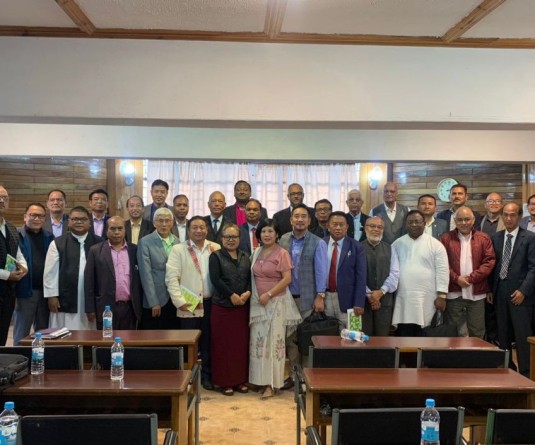
Alino S Chishi
When the movement #MeToo spread all around the globe, patriarchal society like that of Nagaland has still and silent. No one raised a hand until recently the Morung Express daily (October 16, 2018) did a report on #Me Too campaign. Yet it is intriguing when one reads the statements given by the eminent writers of Nagaland. Projecting Nagaland state with the lowest record on crime against women does not leave any “room for complacency because the data itself may be misleading since not all crimes are reported and registered due to one or the other reason". This is a fragmented notion of the society. The reported lowest crime record against women does not make Nagaland free of sexual harassments which largely go unreported.
One should not completely deny the fact that sexual harassment or rape cases records is lesser in Nagaland as compared to others states of India. It is reported that 92 cases of crimes against women were registered in Nagaland in 2015, according to Gender Statistics Nagaland. Therefore, one must not assume that the state is safe for women because every now and then shocking stories of rape, sexual assault, abduction, child molestation, etc., rant the air often to assumed normalcy.
‘Me too’ movement demonstrates the widespread prevalence of sexual assaults, harassments and rape in the work place. The original purpose of 'Me too' as used by Tara Burke in 2006, was to empower women through empathy, especially young and vulnerable women. Predominantly women are more prone to sexual assaults but it doesn't mean men do not face sexual assaults. Though it might not be relevant to our society but even men are vulnerable to sexual assaults as seen in some reports. To support and join this movement, I would declare without any hesitations that I have also been harassed in many situations at public place. It might arise a question as to why I did not adduce my case then but what needs to be asked more is: "Is there a culture of silence, or a lack of mechanism to address sexual violence?". The simple answer is both, a culture of silence and also lack of any mechanisms for such grievance reddressal. One of key deterrent is the fear of social stigma of being victim of sexual harassment as we live in a world that does seem to take sexual assault as normal behaviors. Sexual violence is thus grossly unrecognized and so under-reported. Victims are blamed and persistently stereotyped by society and there is a general lack of understanding about and denial of the problem and the true nature of the crime.
There are many reasons why people do not report sexual assault, and most are related to stigma. Victims often feel embarrassed and ashamed, and fear of being blamed. Despite the fact that they have been violated, victimised and injured, they worry that they will be judged and held responsible for what happened to them. Our lives are governed by the customary laws where every village or khel are accustomed to obey the rules and laws of the institution. In such case, nepotism takes place where the victims’ cases are compromised under the favour of chiefs. Therefore, here is one of the reasons where mechanism for grievance redress lapses. Yet another reason might be the ignorance of not knowing it is sexual harassment. Women don’t even realise that what they are experiencing. Absence of a clear definition of what qualifies as sexual harassment is just one of the reasons why so many cases go unreported.
One should understand that my intention is to create awareness and to bring to the attention of the concerned agencies and organizations that one should not ignore such movement but rather anchor the feasibility of the problem, as 92 cases reported is not a matter of joke not denying that is also just a periphery where I believe that many sexual harassment has been compromised because of some reason or the other.
I also encourage the likeminded to comment back and share your thoughts ,as your thoughts are very much important not to prove whether the movement is applicable but to bring out general idea of how one can empower women.




